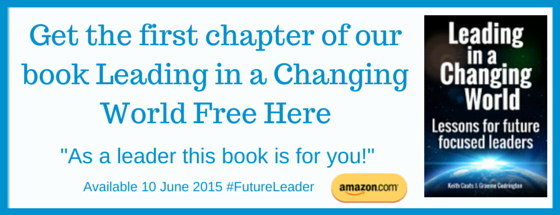 1. Increasing global integration and growing diversity
1. Increasing global integration and growing diversity
The outlook for global growth is strong for 2015 and will continue to accelerate for the remaining decade and more. This is due to sustained growth in emerging markets, the falling cost of oil and growing consumer confidence and demand. Economic power will shift from the West to the East, and even southwards into Sub-Saharan Africa. China will become the largest economy around 2025 and India has the potential to overtake China in 2050, largely as a result of superior demographics. Over the next thirty years the world will experience massive economic growth with Goldman Sachs predicting that by 2050, global real purchasing power will quadruple. The equivalent of a Germany will be added to the global economy every year between now and 2050 and the consulting company McKinsey calculate that by 2025, thirty trillion dollars of consumption will be added to the global economy. Globalisation will continue to be a business reality and will drive the future economic agenda. Diversity will become the innovation currency of the future and leaders will need to be adept at managing diversity at a global level.
2. Ferocious competition
Competition will increasingly come from unlikely sources. China is now the world’s largest and fastest-growing source of entrepreneurial start-ups. It is also an incubator for large businesses, both foreign and homegrown. Huawei, a telecoms giant, Lenovo, a computer maker, Alibaba, an ecommerce company and Haier, a white-good firm are transforming the way Western companies think about Asian competitors. Ways of engaging and working with people inside and outside organisations are being rethought as new business models are being be invented – Airbnb is now the world’s largest hospitality company, Uber has been valued at over $40bn – and new competitors will emerge seemingly from out of nowhere
3. iPA’s will be the knowledge worker’s best friend
No iPA does not stand for India Pale Ale or International Psychoanalytical Association. iPA stands for digital personal assistant. These little geniuses who live in the cloud will lead the next wave of productivity. Machines are becoming smarter and combined with the Internet of Things – there are already more objects connected to the Internet than there are people living on our planet – we will increasingly interact with smart machines and things. Studies from Oxford University suggest that smart machines will replace up to 40% of knowledge worker jobs over the next two decades. However, the more likely scenario will be that software bots and machine learning algorithms will not only create new jobs and new ways of doing things but also supplement and enhance productivity of existing knowledge jobs. There are things that machines and computers can do better and there are things that humans can do better than machines, at least for now. By working and partnering with iPA’s new levels of productivity will be reached. Siri and Google Now represent the early incarnations of future iPA’s. These software bots will be invited by workers to trawl through the hundreds of emails they receive each day, read management reports and intra-company social media feeds; listen in on phone calls and meetings. iPA’s will process massive amounts of information, far more than workers can, they will analyse this data to identify patterns and in real-time provide workers with immediate and useful output. iPA’s will make knowledge workers lives easier and more efficient.
4. Mass mobility and the decline of permanent employment
The growth of flexible e-workers or elancers will be a growing trend, supported by mobile technology and the cloud. Projects and teams will be managed much the same way they are on a film set. Leaders will need to become directors rather than managers, guiding resources, coaching players and managing patterns, systems and design. Players with the available skills will collaborate and compete for projects, work for the duration of the project and then disband, perhaps to reform for another project. We are seeing online platforms like Kaggle, a home for data scientists, create new workplace models where the best and most talented data professionals, from around the world, can compete and play in a virtual setting to find solutions for the biggest and most prestigious companies. We will see the rise of the professional guild as more and more people work in flexible contract based structures.
5. Workforce evolution
Aging will be a major theme. The number of elderly will explode, and perhaps surprisingly, 90% of this growth will take place in emerging markets. Retirement, or non-retirement will increasingly be a reality and challenge for society. Our research suggests that the concept of retirement will vanish over the next two decades. People do not want to retire, they are healthier, living longer and many do not have the financial security to retire. We predict rising generational conflict as younger employees are unable to progress or enter employment because workers in retirement age remain working longer. This ticking time bomb will require a radical rethink of how people are employed, promoted, motivated and managed.
About the Author: Dean van Leeuwen is a strategist, international speaker and co-founding partner of TomorrowToday Global. He is based in London and available to speak, facilitate workshops and consult to boards on strategy and leadership around the world. Follow Dean on Twitter or LinkedIn




Trackbacks/Pingbacks